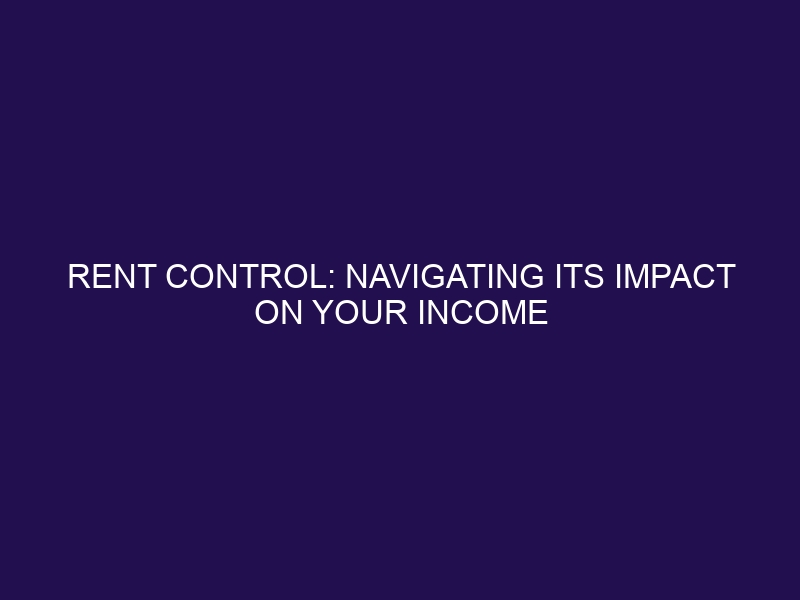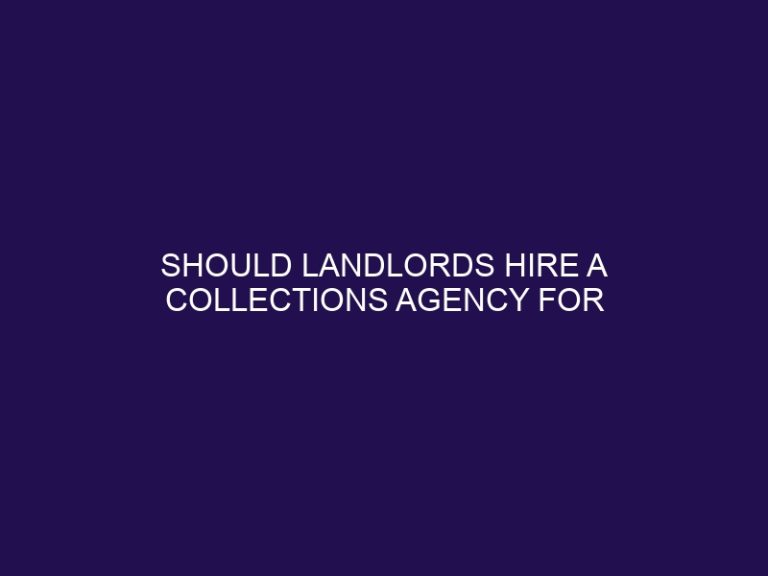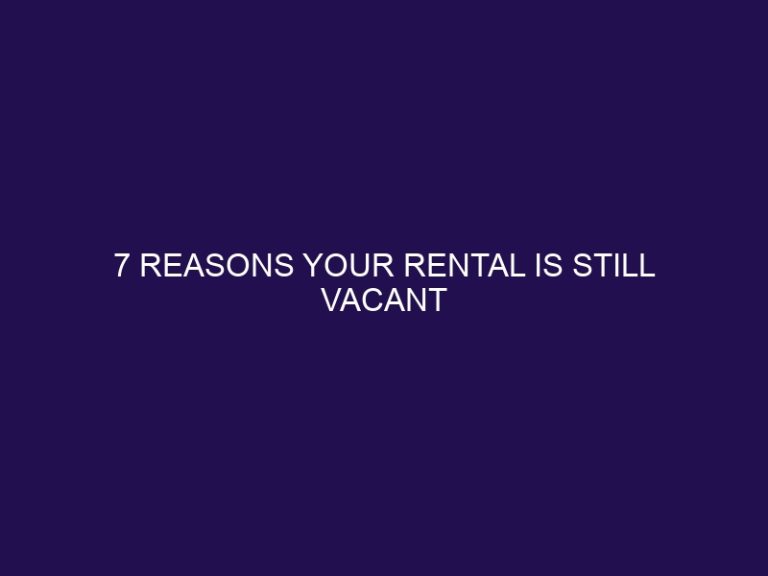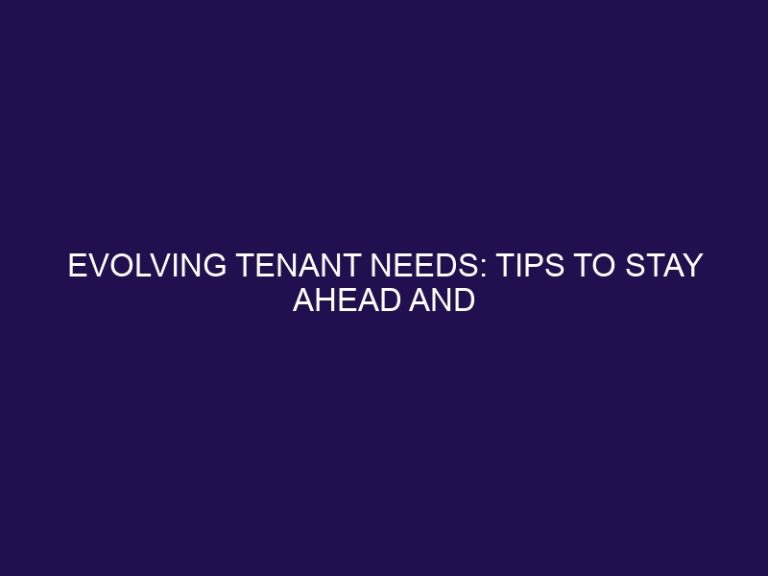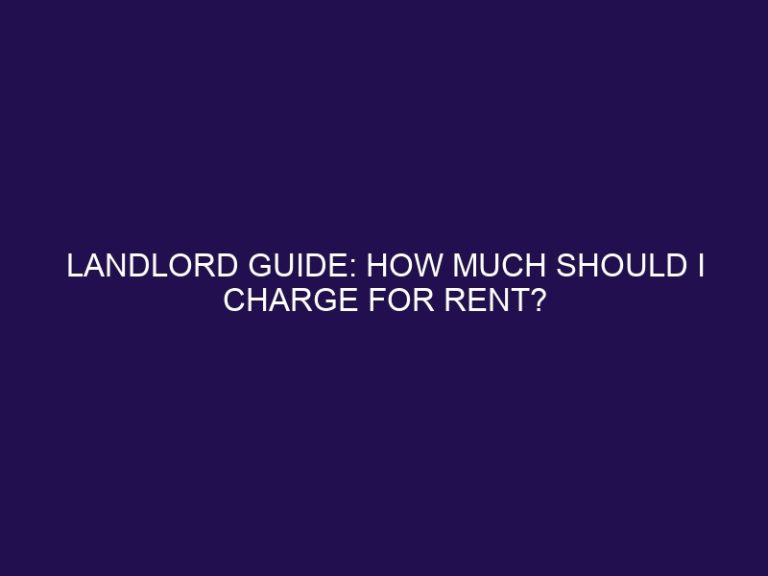Rent Control: Navigating Its Impact on Your Income
Rent control is a form of government regulation that limits the amount a landlord can charge for rent. This policy is often implemented in cities with high housing costs to protect tenants from excessive rent increases. Rent control laws can have a significant impact on both renters and landlords, and it is essential to understand the pros and cons of this policy before making any decisions.
According to a study by the Joint Center for Housing Studies at Harvard University, rent control can help keep housing prices affordable for low-income households and provide stability for long-term tenants. However, it can also have negative consequences, such as reduced incentive for landlords to maintain and upgrade their properties and a decrease in the overall housing supply.
For renters, rent control can provide relief from rising housing costs and allow them to budget more effectively. On the other hand, it can also limit their options for housing and make it challenging to find a new place to live. For landlords, rent control can limit their potential profits and make it difficult to cover maintenance and operating costs. However, it can also provide a stable source of income and protect them from economic downturns.
To navigate rent control, it is crucial to understand your rights and obligations as either a renter or a landlord. It is also essential to consider alternative solutions to the affordable housing crisis, such as affordable housing programs, increasing housing supply, and providing tax incentives for landlords. As a renter, it is vital to stay informed about local rent control laws and communicate effectively with your landlord. If you are a landlord, make sure to understand your responsibilities and explore different options to maintain profitability. By educating yourself and staying informed, you can effectively navigate the impact of rent control on your income.
What Is Rent Control?
Rent control is a government regulation that limits the amount landlords can raise rent. Its purpose is to ensure affordable housing for tenants and maintain stable neighborhood demographics. The specific policies of rent control may differ depending on the location, with some cities having more stringent regulations than others.
How Does Rent Control Work?
- Legislation: Governments implement laws to regulate rental prices.
- Price Caps: Set maximum allowable rent increases.
- Eligibility: Determine which properties and tenants fall under rent control.
Did you know? How Does Rent Control Work? Rent control aims to provide affordable housing while balancing landlord’s income.
What Are the Pros and Cons of Rent Control?
Rent control is a controversial topic that can greatly impact the finances of both landlords and tenants. In this section, we will explore the potential benefits and drawbacks of rent control, allowing you to make an informed decision on whether it is a suitable option for your situation. From the advantages of stabilized rental rates to the potential limitations on property maintenance, we will delve into the pros and cons of rent control and the impact it can have on your income.
Pros of Rent Control
Rent control has several benefits, including:
- Stabilizing housing costs and providing affordability and security for tenants.
- Helping to curb gentrification and safeguard diverse communities.
- Assisting low-income families.
- Fostering economic stability and allowing residents to allocate funds to other essential needs.
Cons of Rent Control
The implementation of rent control can have negative effects, such as a decrease in available housing, deterioration of property conditions, and a lack of motivation for landlords to improve or renovate rental units. This policy may also result in lengthy waiting lists and underground markets for rental units, further exacerbating the existing housing shortages.
How Does Rent Control Affect Your Income?
- Rising Incomes: Rent control can have a positive impact on your income by keeping housing costs stable, allowing for increased disposable income.
- Market Stability: Stable rental prices provide financial predictability, making it easier to budget and plan for the future.
- Long-Term Impact: Rent control can contribute to savings and investment opportunities, helping to improve your financial well-being in the long run.
Consider leveraging the benefits of rent control to strengthen your financial situation and work towards achieving your future financial goals.
Does Rent Control Help or Hurt Renters?
Rent control can have both positive and negative effects on renters. On one hand, it can provide affordable housing options and protect against excessive rent increases. On the other hand, it can also limit the availability of housing and result in deteriorating living conditions in rent-controlled units. To effectively navigate rent control, renters should have a thorough understanding of local laws and maintain open communication with their landlords.
How Does Rent Control Impact Landlords?
- Rent control limits landlords’ ability to increase rental income, impacting their financial stability.
- It may also lead to deferred maintenance as landlords face financial constraints.
- Landlords may struggle to cover operating expenses due to rent control regulations.
- As a result, some landlords may consider converting rental units into alternative property uses to compensate for lost income.
What Are the Alternatives to Rent Control?
As rent control continues to be a controversial topic, it is important to consider alternative solutions that may be more effective in addressing the issue of affordable housing. In this section, we will explore some potential alternatives to rent control, including affordable housing programs that offer subsidies or vouchers to low-income individuals, strategies to increase the supply of housing, and tax incentives for landlords to offer more affordable rent options. By looking at these alternatives, we can gain a better understanding of the complexities of the issue and potentially find more viable solutions.
1. Affordable Housing Programs
- Research local affordable housing programs such as Section 8 or Low-Income Housing Tax Credit (LIHTC) to find potential housing options.
- Apply for housing assistance through government or non-profit organizations that offer such programs.
- Check the eligibility criteria and submit all required documents for consideration.
2. Increased Housing Supply
- Encourage the local government to streamline building permits to increase housing supply.
- Promote mixed-use developments to optimize land use and further increase housing supply.
- Incentivize developers to construct affordable housing units and contribute to the increased housing supply.
- Utilize public-private partnerships to fund and expedite housing projects, ultimately leading to an increased housing supply.
3. Tax Incentives for Landlords
- Research tax incentives for landlords, such as deductions for property depreciation.
- Consult a tax advisor to understand available tax breaks and credits.
- Keep thorough records of property-related expenses to maximize tax benefits.
How Can You Navigate Rent Control?
As a renter, it is important to be aware of the impact that rent control can have on your income. In this section, we will discuss how you can navigate the complexities of rent control and make informed decisions about your housing situation. By educating yourself on local rent control laws and understanding your rights as a renter, you can better advocate for yourself. We will also explore the importance of open communication with your landlord and the option of seeking alternative housing arrangements. Let’s dive into the details of navigating rent control.
1. Educate Yourself on Local Rent Control Laws
- Research: Familiarize yourself with local rent control ordinances, including regulations on allowable rent increases and eviction.
- Legal Assistance: Seek guidance from a legal professional to interpret complex laws and protect your rights.
- Community Resources: Utilize tenant advocacy groups or housing agencies for information and support.
2. Understand Your Rights as a Renter
- Review Lease: Carefully examine your lease agreement to understand your rights as a renter.
- Tenant Laws: Familiarize yourself with local tenant laws regarding eviction, repairs, and privacy, in order to fully understand your rights as a renter.
- Documentation: Keep records of communications and issues with the property for legal protection, so you can better understand and protect your rights as a renter.
3. Communicate with Your Landlord
- Initiate a polite and clear conversation with your landlord regarding any concerns or issues.
- Discuss lease terms, repairs, or any changes in circumstances that may affect your tenancy.
- Be sure to keep a record of all communications for future reference.
A tenant, who was facing financial difficulties, openly communicated with their landlord about the situation. This resulted in the landlord offering a temporary rent reduction, greatly alleviating the tenant’s financial burden.
4. Explore Other Housing Options
- Consider co-living spaces for cost-effective community living.
- Explore renting a room or apartment in a shared house or condo.
- Research short-term rentals or subletting options.
- Review homestay or house-sitting opportunities for temporary housing solutions.
In the nineteenth century, urban housing shortages led to the emergence of tenement housing in major cities, prompting housing reform movements and the establishment of early public housing initiatives.
Key Takeaways
- Understand local rent control laws and regulations.
- Evaluate the impact of these laws on your current and future income.
- Consider long-term financial planning to mitigate potential effects.
Did you know? Rent control policies can vary significantly from one city to another, influencing rental market dynamics.
Summary
Rent control is a policy that aims to limit rent increases in order to protect tenants from high living costs. While it can be beneficial for tenants, it may also result in decreased property maintenance and investment, ultimately affecting the availability of housing. This is a controversial issue with both positive and negative aspects that must be carefully examined and addressed through balanced policymaking.
Frequently Asked Questions
1.
What is rent control and why is it a significant concern for renters and property owners?
Rent control is a set of laws that limit how much and how often landlords can increase rental rates on residential properties. While it aims to provide affordable housing, it can also have negative consequences such as discouraging building and leading to inefficient allocation of housing. Rent control is a polarizing and complex issue that is gaining popularity in many large cities.
2.
What are the most common rent control laws and how do they impact rental income potential?
Some common rent control laws include vacancy control, rent stabilization, and rent freezing. These laws can limit cities’ abilities to raise rents and also impose caps on rent increases. While they may provide insurance against sudden rent hikes for tenants, they can also restrict property owners’ ability to optimize their rental income.
3.
Is rent control gaining popularity and what are the potential negative spillovers?
Rent control laws are gaining popularity in popular metros across the United States, but they also have negative consequences. These include discouraging developers from constructing additional housing, leading to fewer vacancies, and potentially lowering the overall quality of rental housing stock.
4.
How can property owners strategically deal with rent control provisions to maximize legal rents?
Rent control laws often have legal pitfalls that can be challenging to navigate for property owners. It is essential to stay updated on the latest legislation and consult with an experienced commercial real estate broker to understand the ins and outs of rent control and its impact on rental income potential.
5.
What are the benefits and drawbacks of rent control for different groups, such as lower and higher income households?
Rent control can disproportionately benefit lower income and fixed income households by limiting rent increases and providing a form of relief for those living on the edge of financial squeezes. However, it can also have negative effects on higher income households and discourage building in productive cities.
6.
How can renters understand their rent control rights and avoid illegal rent hikes?
Rent control policies can be complex and vary from state to state, making it essential for renters to have a comprehensive understanding of their rights. It is crucial to stay updated on the latest legislation and consult with an experienced real estate agent to avoid being priced out of rental living.

